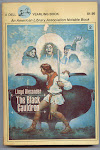Sunday, October 26, 2014
Shakespeare's Dad
Thomas Seymour, 2nd Earl Arundel
When Henry VIII died in January 1547, he left a widow who still had her head. Her name was Katherine Parr.
Henry's favorite wife had been Jane Seymour, who had died after bearing the future King Edward VI.
Two of Jane's brothers, Edward and Thomas, survived Henry. Near his deathbed, Henry appointed Edward Seymour, Duke of Somerset/Earl of Hertford , as Protector of the young prince.
Soon after Henry VIII died, his widow Katherine married Thomas Seymour, Duke of Something/second Earl Arundel, and Henry's young daughter Elizabeth was sent to live with them, at which time Elizabeth, born in September 1533, was 13 years old.
After a couple of years, Elizabeth was sent to live in the country (Hatfield), ostensibly sick, but according to rumor pregnant by Thomas.
The rumors circulating around London prompted the Protector to send letters repeatedly to Elizabeth questioning the matter. Finally, Elizabeth wrote back entreating him to let her come to London to show folks that she wasn't pregnant.
While Elizabeth was in the country, Thomas had tried to abduct her, was arrested and eventually beheaded.
Down to here is documented history. The rest is conjecture by Charlton Ogburn and other historians, and me.
The sum of the conjecture/assumptions is that at age 16 or 17, Elizabeth wasn't pregnant any more because the child had been born. She took him to a kinsman, the old Earl of Oxford at his castle Hedingham in Essex, who raised him as his own son. They named him Edward after his uncle Seymour and after Elizabeth's brother Edward, the young Prince.
At that time the Earl of Oxford's wife had in fact died. Sometime around 1548 to 1550, he in fact married a young widow, Margery Golding, sister of the scholar/author/translator Arthur Golding. Margery was reputed to be the mother of the child, who over the years was in fact educated by Arthur Golding and other tutors, and at Oxford and Cambridge. When he was 12 years old, his "father," the 16th Earl of Oxford, died, and young Edward was sent to London, where Elizabeth made him the ward of her secretary, William Cecil, whom she appointed Baron Burleigh. Through the sixteenth earl, Edward was hereditarily 17th Earl of Oxford and several other titles, as well as Lord Great Chamberlain of England. Over the remaining lifetime of Lord Burleigh, almost all of Edward's numerous estates, forests, castles and property were in fact transferred to, or sold by, Lord Burleigh. After Burleigh died, Elizabeth granted Edward 1,000 pounds a year to live on.
Many years later, Edward's second wife, Elizabeth Trentham, bought back his "ancestral" castle Hedingham in Essex before Edward died (fact).
What all of this has to do with "Shakespeare" has been researched and written about for more than a hundred years by the Ogburns, members of the American Bar Association, and many other scholars.
Posted by Joanne Cage --
Joanne Cage
at
11:55 AM
![]()
Labels: Shakespeare
Subscribe to:
Post Comments (Atom)














No comments:
Post a Comment